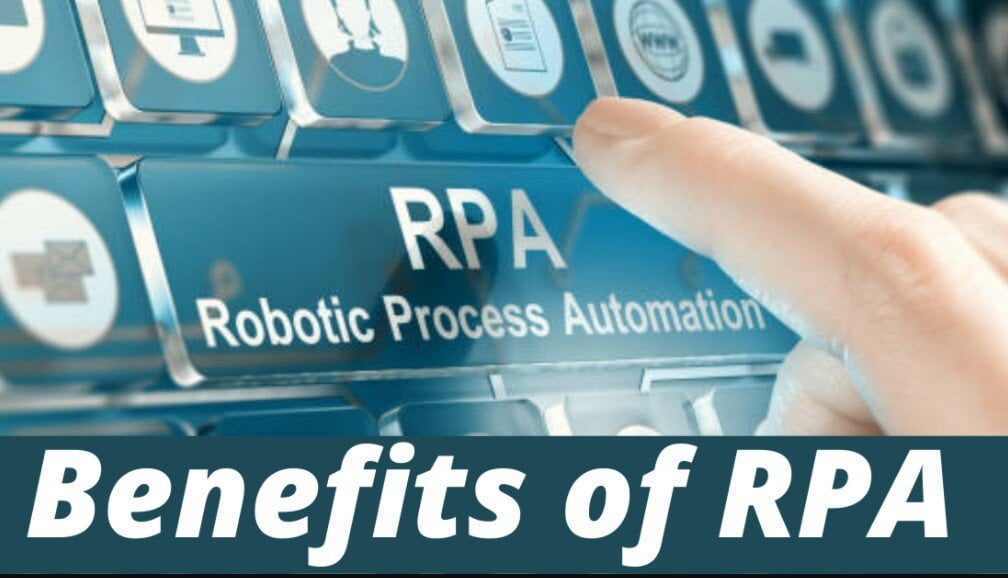Now firstly lets us know ‘What is Robotic Process Automation (RPA)?’
RPA (Robotic Process Automation) is one of the most remarkable automation technologies that play a crucial role in the overall solutions.
RPA serves as a new technological tool for companies by strengthening business productivity and efficiency. Furthermore, when integrated with conventional business solutions, it can energize the digital transformation by enabling enterprises to control end-to-end business processes
Key Characteristics of Robots Build With RPA Software
- UI Interaction – The RPA bots can do as humans interact with the UI of an IT system like filling information into fields; pushing buttons, etc. The robot script includes conditions and rules to pretend actual user behavior. Businesses Model can create scripts with robot developers or record directly on the RPA technology.
- Execution Process – The RPA run processes like how human executes them
- High Volume Data Handling – The RPA bots handles high volumes of data in the UI and process interaction.
- Extendibility – Advanced RPA robots can combine with AI by using machine learning algorithms. Machine learning allows the robots to automatically understand and learn from experience.
Benefits of Robotic Process Automation
Here it’s every industry is aware of RPA application at least in this 2022 era and what values it can give to every business given the evolution of the IT landscape. Here are the most significant benefits:
- Increase Productivity
Most of the robots developed from the RPA system are fully focused on specific tasks. Obviously, robots can calculate, click and navigate through the screen within seconds. This time saving is not good to replace the worker with a robot.
- Increase Efficiency
No Break time it requests – it can work 24×7 and 365 days a year. Robots can complete the same volume of work in less time or more volume of work at the same time or even less time.
- Enhance Accuracy
The main and most important feature of robotic process automation is its power to eliminate processing errors. It requires testing, training as well as good governance. Moreover, as long as the business processes are properly honed and accurately portrayed, businesses need not be worried that the robots will make errors that their employees might.
- Increase Security
Among the benefits of RPA, the most convincing one is that it functions on a smooth level. As the bot performs only single tasks, there are no chances of information leakage. Here, the data accesses are well documented and controlled. The most ignored fact in RPA implementation is the saga that robots may replace the need for human employees.
- Boost Scalability Opportunities
RPA is flexible to adapt to what the present moment demands and the number of tasks needed for any given task. Robotic automation can support businesses to take the selected requirements of certain objectives. And it is obvious, adjustable to time- and task-specific requirements; even smaller businesses can manage the unforeseeable evolving market demands.
- Improve Analytics
RPA technologies allow organizations to collect data about the execution of the task that can be employed for analytical purposes. Work volume patterns, errors, cycle times, and exceptions are some of them. When data is efficiently collected, compared, and differentiated in other fields, it allows for better decision-making on the micro and macro levels.
- Customer Service
Today, most companies have a hard time meeting highly varied customer demands. Therefore, in an RPA adopted company, daily, repetitive and dull tasks are handed over to the robots, so the employees can better concentrate on customer care.
- Non-disruptive
Some businesses’ are uncertain to replace legacy systems due to the high cost or the business downtime and challenges of IT infrastructures. In case IT promotion is not guaranteed, the RPA system can be placed.
Conclusion
It is an enhancement for an organization to adopt RPA solutions to have a good insight into their primary business goals. If the available IT infrastructure and business processes are effective, then one can consider RPA automation as a user-friendly tool to meet their automation objectives. Even if the process, platforms, and applications are outmoded, then the RPA can be used to solve it.
FAQ’s
1. What is RPA?
Ans: Robotic process automation (RPA) is a software technology which make easy to building, deploying, and manage software robots that mimic human’s actions interacting with digital systems and software.
2. What is the fee structure?
Ans: The fees are minimal you can easily join and learn. Just link us to know more about the course and fee etc. All the Best !!!!.
3. What is the future of RPA?
Ans: It has a very bright future you can imagine. Just Goolge it you’ll come to know……







